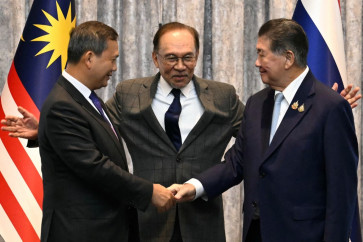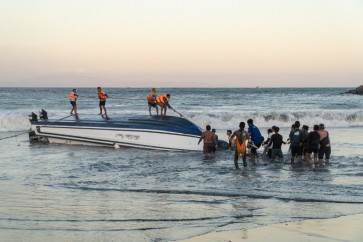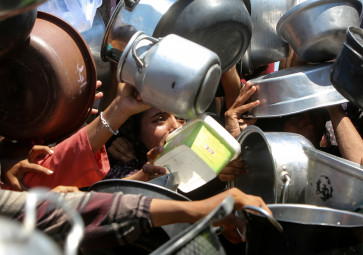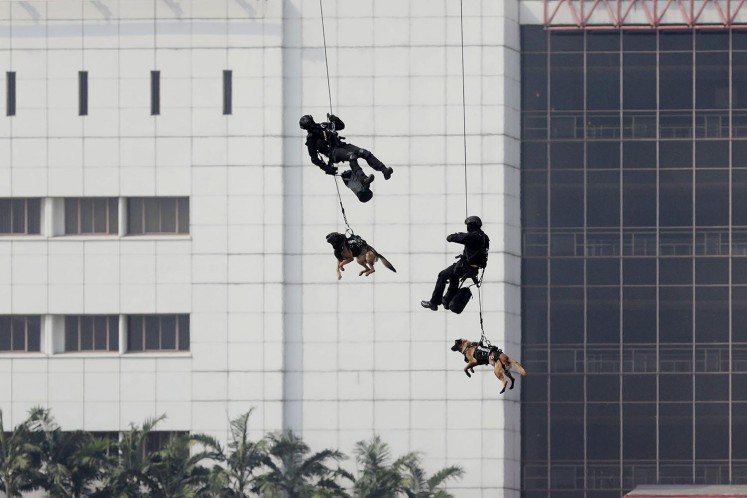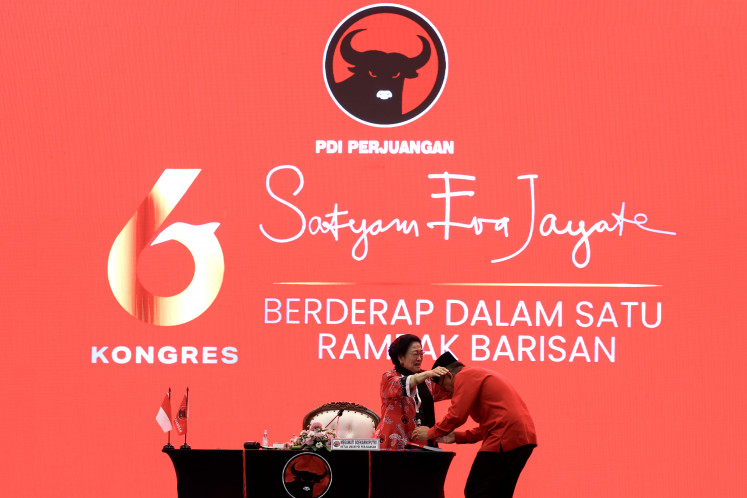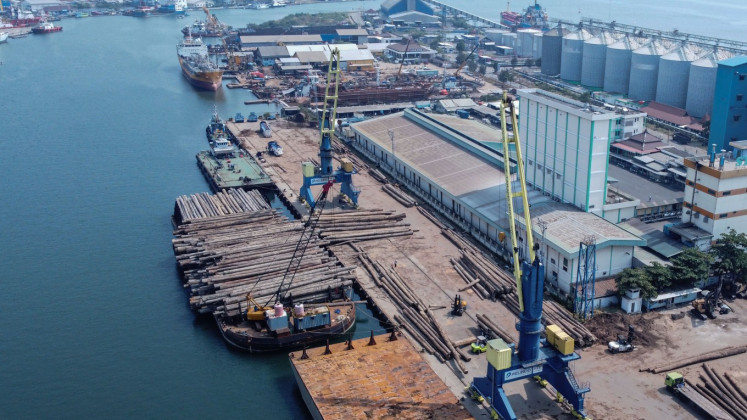Popular Reads
Top Results
Can't find what you're looking for?
View all search resultsPopular Reads
Top Results
Can't find what you're looking for?
View all search resultsAlliances crucial in combating radicals: US Muslim cleric
A visiting American Muslim leader has said moderate religious groups in Indonesia need to work together to promote tolerance and contain growing religious conflict across the country
Change text size
Gift Premium Articles
to Anyone
A
visiting American Muslim leader has said moderate religious groups in Indonesia need to work together to promote tolerance and contain growing religious conflict across the country.
Feisal Abdul Rauf, the imam of New York’s Al Farah Mosque, said collaborative work was crucial in promoting religious tolerance.
He made the statement in a public discussion titled “Religious Freedom and Religious Tolerance”, held by the Communion of Indonesian Churches (PGI) in Jakarta on Friday.
“We have to push back against the extremists. All of us who believe in moderation and ethics have to build a strong coalition. We need each other to combat extremism,” he said.
In the discussion, attended by interfaith activists and students, Rauf emphasized that it was important for these groups to make sure that political leaders were on their side by building relationships with political leaders who had influence over the situation.
Rauf shared his experiences in dealing with protests over his plan to build Park51, a Muslim community center in New York. Opponents of Park51 said they did not want to have an Islamic center located near Ground Zero.
“We [supporters of Park51] survived attacks and criticism because of our alliance with members of various communities two years ago. We developed interfaith relationships with Jewish leaders, Christian leaders and political leaders. This is why such a coalition is very important. It goes beyond religious and political identities,” the Egyptian-American said.
The Setara Institute recorded as many as 244 violations of freedom of religion last year throughout Indonesia. The violations ranged from intimidation to prohibitions against places of worship.
Data from the Human Rights Watch shows that discrimination against and attacks on minority religious groups nationwide have increased from 135 incidents in 2007 to 216 in 2010, with 184 attacks in the first few months of 2011.
Rauf said that Indonesian activists had to address the radicals by engaging in conversations that were related to the latter’s deepest beliefs.
“To be able to turn them around, we have to learn about them, their beliefs and their mindset. So talk in their language,” he added.
“People in various countries have their own interpretation of [Islam], including in Indonesia, but we are all equal. So it is wrong to enforce one’s preference on others,” Rauf said. (tas)


